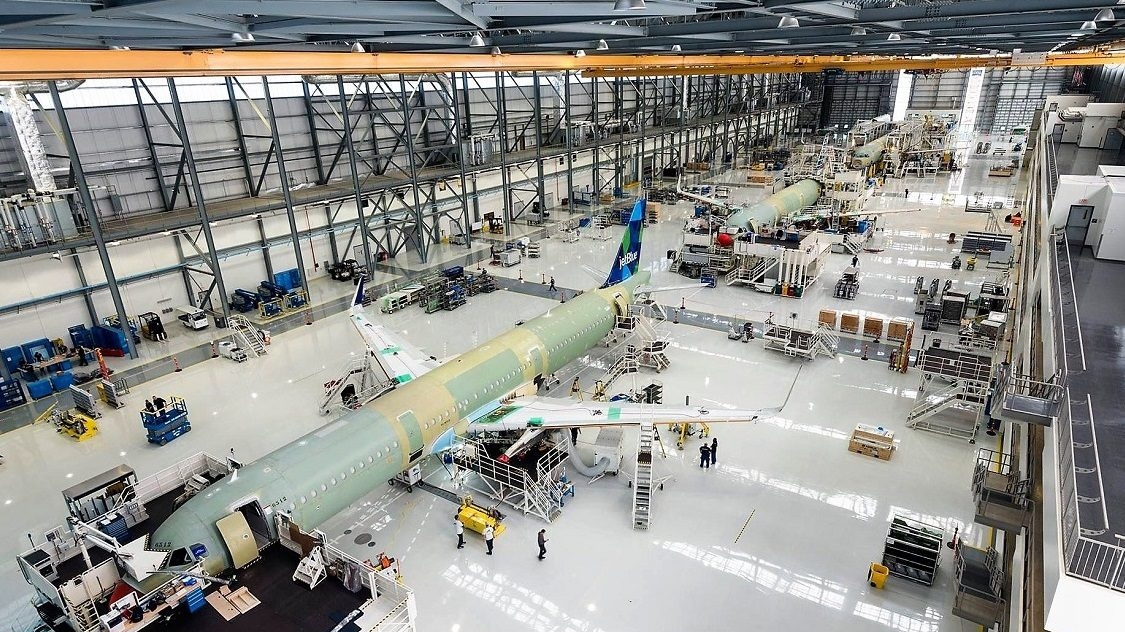Allow me to open this column by sharing some words from the governor of Alabama. “Huntsville, Alabama is to the Space Age as Detroit, Michigan is to the Automobile Age. We are living in the Space Age. We must think big and do big tasks. We must let the rest of the world know that Alabama is the same friendly state it has always been, and that Alabama welcomes new industry, tourists, and retired people. This can only be done through an administration that recognizes our problems and is determined to tackle these problems with a realistic approach that makes Alabama truly the leader of the Space Age.”
Now, that message is not from Gov. Kay Ivey. It is from former Gov. James E. “Big Jim” Folsom, who gave the remarks back in 1962.
I shared those words to demonstrate just how very long Alabama has played an important and vital role in the nation’s aerospace program.
In 1910, the Wright brothers opened the nation’s first flying school on the outskirts of Montgomery, where the present-day Maxwell Air Force Base is located.
Roughly 40 years later, the development of the Mercury Redstone rocket, which would propel our nation’s first astronauts into the heavens, began in Huntsville and gave birth to the manned space program.
And Marshall Space Flight Center is where Dr. Wernher Von Braun and his committed team of scientists and engineers developed the Saturn V rocket that took men to the moon and allowed them to place a U.S. flag on its surface.
The aerospace manufacturing and development that is still being done in Alabama today continues to bring the stars and planets closer to the earth and ensures that future generations are privy to the same dreams and inspirations that the Mercury, Gemini, Apollo, Skylab, Shuttle, and International Space Station eras provided to those who came before them.
Aerospace remains a significant contributor to Alabama’s economy with more than 60,000 jobs within the state relying directly upon the industry and its associated defense components. Additionally, its economic impact is estimated to be in the billions of dollars.
The Marshall SFC, for example, is spearheading development of the Space Launch System rocket that will take astronauts back to the moon and the lunar lander that will return them to its surface as part of the Artemis program.
Several Alabama-based companies and hundreds of suppliers are also deeply involved with space transportation and cargo missions to the International Space Station.
Companies such as United Launch Alliance (ULA), who build Atlas 5, Delta 4 and Vulcan-Centaur rockets, continue to lead our nation in space development. Their recent Pentagon award, cements Alabama’s significance in aerospace development and exploration for many years to come. Aerospace leaders rely on the state’s strong workforce, and encourage suppliers such as Blue Origin and RUAG, to call Alabama home and further grow the Alabama economy.
And when President Trump signed the $738 billion defense appropriations bill last December, he officially created the United States Space Force, which is now the sixth branch of the U.S. Armed Services and the first new one since the Air Force was originated in 1947.
“Space is the world’s newest war-fighting domain,” President Trump said during the signing ceremony. “Amid grave threats to our national security, American superiority in space is absolutely vital.”
Given the prominent role that Alabama companies have played in our nation’s past and present aerospace dominance, the creation of the Space Force holds much promise for future economic opportunities, as well.
In addition to being significant employers and economic drivers within the state, Alabama’s aerospace partners are also proving to be committed and generous corporate citizens.
A staggering revenue shortfall prompted by the Coronavirus pandemic recently threatened to close the U.S. Space and Rocket Center’s world-famous U.S. Space Camp. The Rocket Center is consistently ranked as Alabama’s most popular paid tourist attraction, and last year alone, about 44,000 children and adults graduated from the Space Camp program. Vice President Mike Pence visited and toured the hands-on learning facility last year, as well.
When a public plea for donations to avoid closure was broadcast, our state’s aerospace industry helped raise more than $1.5 million in less than a week, to keep the center open. Boeing, which employs roughly 3,000 Alabamians, donated $500,000 in response, and Science Applications International Corporation (SAIC), a federal government information services contractor with significant infrastructure in Huntsville, contributed $250,000.
Combined with another 8,000 financial contributions from individuals and businesses in all 50 states and 36 countries around the world, the generous giving was able to rescue the Space Center from shuttering and ensure that thousands more attendees will be able to learn about and experience the science of flight.
As the national chairman of the Aerospace States Association, a group of public officials, academics, and private sector entities from areas with ties to the aviation and spaceflight industries, I often bear firsthand witness to the important role this sector plays in our state, our nation, and the world.
Alabama is fortunate to have such a significant aerospace influence within its borders, and with our strong support, the industry can continue to provide high-paying jobs, long-term investment, and positive impact to our state for decades to come.



















































